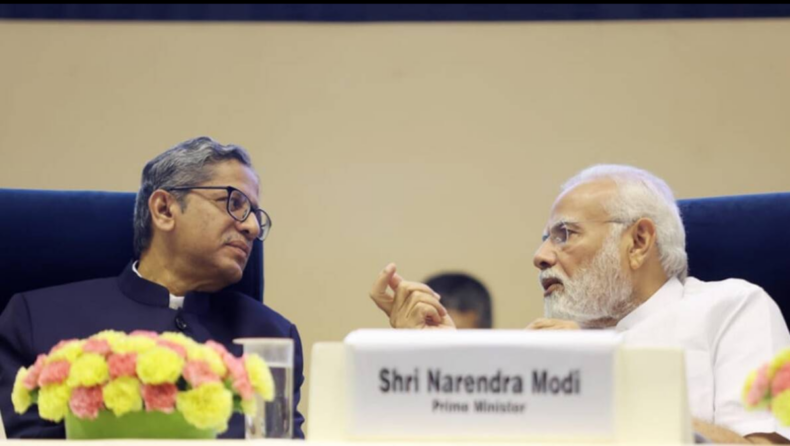According to Prime Minister Narendra Modi, India’s legal system is quickly modernizing and integrating technology into its workings under the Supreme Court’s supervision.

At a time when India is commemorating its 75th year of independence, Prime Minister Narendra Modi praised efforts to integrate technology into the process of delivering justice, emphasizing that it is just as important to have access to justice as it is to live comfortably or do business.
At the maiden All India District Legal Services Authorities Meet, which was held at Vigyan Bhavan, Modi remarked that when Bhim/UPI has originally launched a few years ago, some people thought it would only apply to a tiny industry.
“Today, we see digital payments occurring even in villages,” he said, noting that India accounts for 40% of all real-time digital payments worldwide.
The PM said that today, when there is such a strong natural capacity for invention and adaptability, is the best moment to use technology in the administration of justice.
At the same time, PM Modi expressed his happiness that the nation’s judicial system is quickly evolving in the direction of incorporating technology into its operations while being monitored by the Supreme Court.
He said, “Virtual courts are being established across the nation as part of the e-Courts Mission. For offenses like traffic infractions, 24-hour courts have begun to operate.
For the benefit of the public, the infrastructure for video conferencing in the courts is also being extended.
He said, “What was begun as an option during the Corona season has now become a part of the system.”
I’m informed that more than 1 crore cases have been handled by the district courts by video conferencing and that nearly 60 lakh cases have been heard by the high courts and the Supreme Court.
This demonstrates our legal system’s dedication to the traditional Indian concepts of justice while also being prepared to adapt to 21st-century realities.
PM Modi noted that improving the judicial infrastructure has taken place at a rapid rate over the last eight years, costing Rs 9,000 crore and that it is crucial to the delivery of justice. According to him, this would quicken the process of administering justice.
According to the prime minister, technology may also significantly contribute to ensuring that regular individuals are informed of their constitutional rights and obligations.
PM Modi said that Amrit Kaal is a time of obligation and that we must focus on the areas that have been ignored so far.
He noted that many convicted convicts are awaiting trial and called for sensitivity in how they are treated. He claimed that the District Legal Services Authorities could take on the responsibility of providing legal assistance to such detainees.
The PM also urged district judges, who serve as undertrial review committee chairs, to hasten the release of convicts awaiting trial.
While the Constitution guarantees social, economic, and political justice to every citizen, Chief Justice of India N V Ramana said in his remarks to the group that “the reality is that, today, only a small percentage of our population can approach the justice delivery system when in need” and that “the majority of the people suffer in silence, lacking awareness and necessary means.”
Modern India has aimed to eliminate social inequalities. The goal of Project Democracy is to provide a forum for universal involvement. Social emancipation is a requirement for participation. According to him, access to justice is an instrument for social liberation.
The Chief Justice of India said, “Wherever I travel, I constantly try to represent the successes of the Indian judicial system in gaining the people’s confidence.” However, if we want to better serve the public, we must identify the problems that are impeding our ability to do so.
Making the issues invisible or camouflaging them is useless. The system will collapse if we don’t talk about these problems and if urgent concerns are not addressed. I worry that we may not be able to carry out the social justice requirements of the Constitution.
Therefore, to talk, argue, and decide,” the CJI further exhorted the audience, adding, “This is the concept I have been following throughout.”
Kiren Rijiju, the Union Law Minister, called attention to the backlog of cases in family courts.
He cited the more than 11 lakh cases that are still outstanding in the different family courts and questioned why children should suffer as a result of adult conflicts. To correct this, he asked the district judges to take the initiative, and he pledged that the Center and the states would support them.













